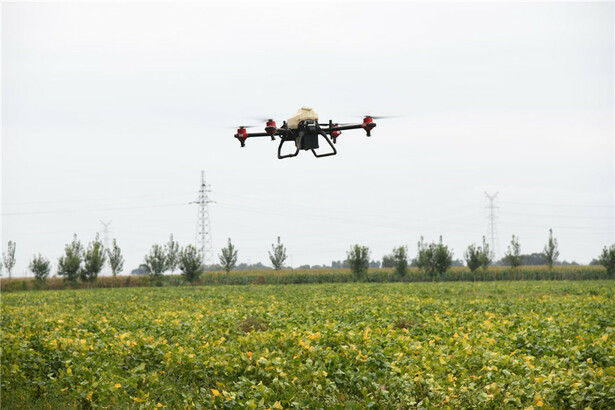At the Zhonglian Eqiao Smart Agriculture Demonstration Base located in the Sanshan Economic and Technological Development Zone of Wuhu, Anhui, with the help of modern information technologies such as the Internet of Things, big data, artificial intelligence, blockchain, and satellite remote sensing, 2043 acres of digital high standard farmland can be managed by only 4 people. In recent years, Wuhu has taken the pilot construction of digital rural areas and the rice industry internet as the starting points to accelerate the construction of smart agriculture, assist in the comprehensive revitalization of rural areas and the modernization of agriculture and rural areas.
Infrastructure construction is the key to building a digital countryside. According to relevant personnel from the Agricultural and Rural Bureau of Wuhu City, Wuhu is actively building facilities such as 5G, IoT, and gigabit optical network in rural areas. It is actively focusing on rural e-commerce and carrying out the construction of “two centers and one site” to enhance the upstream capacity of agricultural products. At present, 398 5G base stations have been built and opened, with a coverage rate of 61.75%; Build 4 county-level e-commerce public service centers, 4 county-level e-commerce distribution centers, 486 village level e-commerce service outlets, 622 village level express comprehensive service stations, and 702 village level beneficial agricultural information cooperatives. In 2022, the city’s agricultural product network sales exceeded 12 billion yuan.
Wuhu City is exploring the use of digital management methods to plant “Wuhu rice”, aiming to achieve standardized cultivation of rice through intelligent agriculture empowerment through digital modeling of soil and climate. It is also vigorously implementing the “Wuhu Rice Demonstration 128” project, which includes establishing 100 or more hundred mu square meters, 20 thousand mu plots, and 8 ten thousand mu gardens, and promoting the cultivation of 280000 mu of intelligent “Wuhu rice” demonstration area. At the same time, we support the construction of digital agricultural factories for production and operation entities in the fields of planting, animal husbandry, and fisheries that have scale strength, a foundation in digital technology application, and significant cost saving and efficiency enhancement. At present, the city has established 16 provincial-level agricultural IoT demonstration sites, 8 provincial-level digital agriculture factories, and 10 municipal level digital agriculture demonstration bases, creating 113 digital agriculture and rural application scenarios, and 1 national agricultural and rural informatization demonstration base.







Please sign in to comment
register